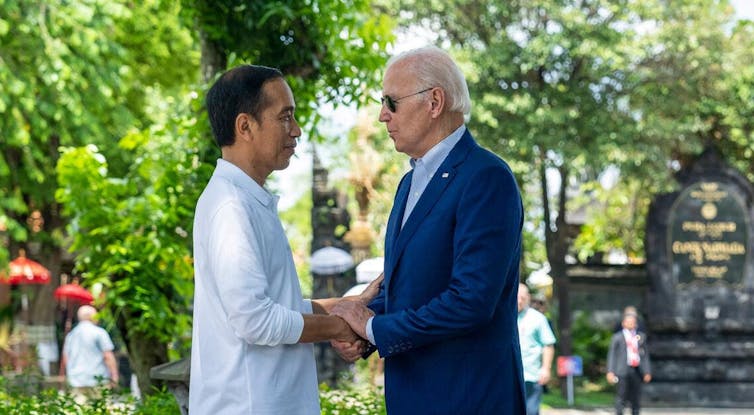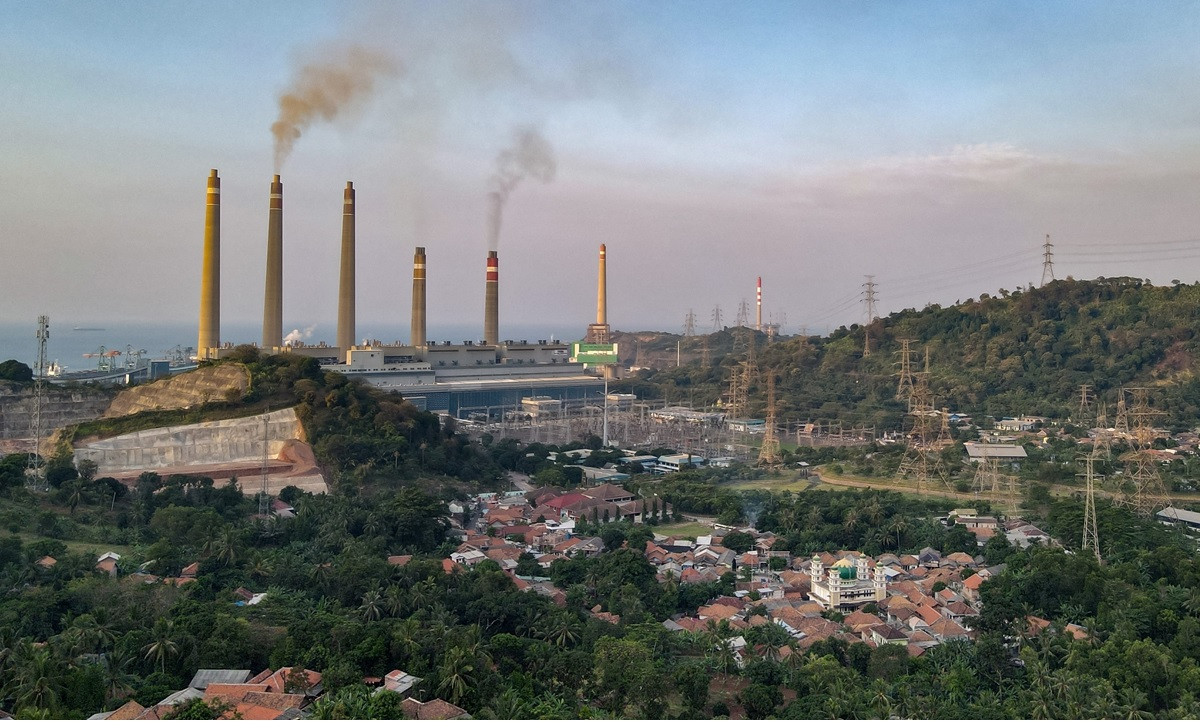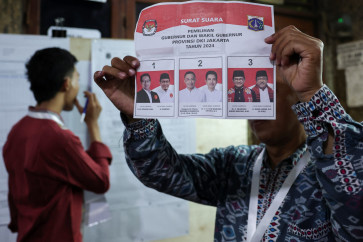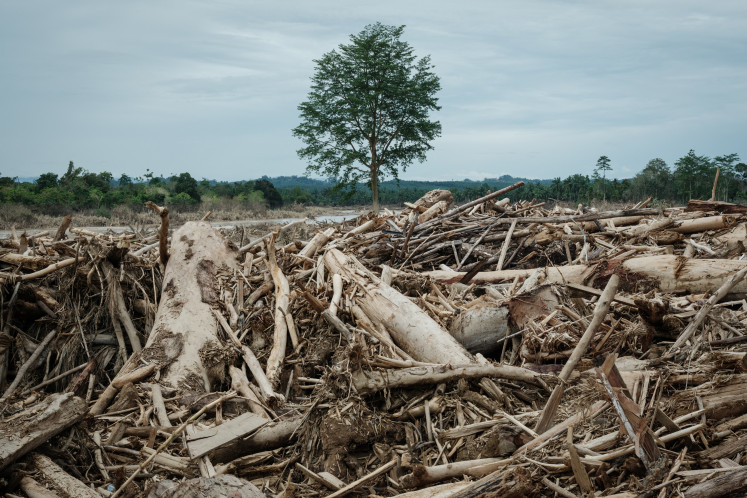Popular Reads
Top Results
Can't find what you're looking for?
View all search resultsPopular Reads
Top Results
Can't find what you're looking for?
View all search resultsIndonesia’s climate target still got the worst rating despite being “more ambitious”
Change text size
Gift Premium Articles
to Anyone
G
lobal research coalition Climate Action Tracker (CAT) categorises Indonesia’s climate goals as “Critically Insufficient”, which means they are far from enough to curb global warming.
This is the lowest possible rating on CAT’s scale. The rating means that “if all countries in the world followed Indonesia’s target, the global temperature would rise by 4℃,” said Anindita Hapsari, a member of the CAT Country Assessment Team from the Institute for Essential Services Reform (IESR), in a public discussion in Jakarta on December 6.
CAT recently released its analysis on Indonesia’s Nationally Determined Contributions (NDC) for 2022.
NDCs are written promises by countries participating in the 2015 Paris Agreement to contribute to keeping Earth’s temperature from exceeding 1.5℃ above the pre-industrial average.
In its latest NDC (called the Enhanced NDC), Indonesia has pledged to reduce emissions under its own abilities (unconditional) by 31.8% and with international support (conditional) by 43.2%, relative to “business-as-usual” emissions by 2030.
The government says this latest target is “more ambitious” than the previous targets, which were 29% and 41% for the unconditional and conditional scenarios, respectively.
Ineffective strategies
Indonesia has planned some ways to reduce pollution in its NDC 2022.
For example, Indonesia wants to increase its use of renewable energy from 7.4 gigawatts to 20.9 gigawatts by 2030.
The new NDC also mentions the government’s plan to include solar power plants on rooftops. The government also wants to increase the annual growth rate of natural forests from 0.71 tonnes of carbon per hectare per year to 0.98 tonnes of carbon per hectare per year.

President Joko Widodo met with US President Joe Biden during the G20 Summit in Bali last November. As part of the G20 events, Indonesia announced that it had secured funding for its energy transition from developed countries. White House
Other plans include building a waste power plant, making environmentally friendly cement, and reducing deforestation.
However, even if those strategies go as planned, they are still insufficient to meet the Paris Agreement target. According to CAT, by 2030 Indonesia’s annual greenhouse emissions will be 1,710-1,805 million tonnes of carbon dioxide equivalent. This is much higher than the level of emissions that would align with the Paris Agreement, which is no more than 1,000 million tonnes of carbon dioxide equivalent per year.
“If we want to call it ambitious, the target must be sufficient,” said Anindita.
Room for improvement
According to another CAT Country Assessment Team member, Shahnaz Firdausi, Indonesia still has room to improve its climate target. One key to this, she said, is to significantly reduce the use of coal.

The use of biomass as mixture for coal-fired power plants in NTT, which is claimed to be able to reduce Indonesia’s greenhouse gas emissions. (PLN)
Based on PT PLN’s (state-owned electricity company) plan, in 2030, the use of electricity from coal energy will reach 64%. After that, coal’s contribution to energy will gradually decrease. Indonesia plans to phase out coal completely by 2050
According to Shahnaz, this plan still needs to align with the Paris Agreement’s targets. If Indonesia intends to contribute to slowing the global temperature rise to 1.5℃, then the use of coal in 2030 must not exceed 10% of national electricity capacity.
“There should be no more than 10% unabated coal-fired power plants in 2030,” she said. Unabated coal-fired power plants refer to those without emission-reducing technology.
Other tasks include increasing the use of electric vehicles, which only reached 2,300 units in 2020 – 80% of them are electric motorcycles. This is a very small number compared with the target in the National Energy Plan (RUEN) of 900,000 electric vehicles in 2020.
Therefore, to achieve a clean energy sector in 2030, Indonesia also has a lot of work to do. For example, renewable energy electricity in 2021 is still around 13.5% compared to other energy sources. Meanwhile, according to the government’s plan, electricity from renewable energy in Indonesia should reach 23% by 2025.
Fortunately, Indonesia already has policies to accelerate the development of renewable energy. “There is a new regulation on renewable energy tariffs in Presidential Regulation No. 112 of 2022 which aims to facilitate its development based on ceiling prices (the highest price of renewable energy) and negotiations on the price based on technology and (power plants) capacity,” she said.
In the forestry sector, Indonesia has reduced the deforestation rate in the past five years. However, Indonesia still needs to be wary of the threat of deforestation due to the expansion of certain commodities such as palm oil.
![]() ---
---
The writer is Environment Editor, at The Conversation Indonesia
This article is republished from The Conversation under a Creative Commons license. Read the original article.











